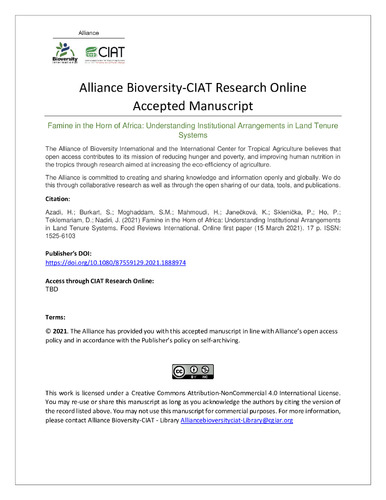Famine in the Horn of Africa: Understanding institutional arrangements in land tenure systems
Natural calamities such as drought, famine, and climate change have collided to create a humanitarian crisis. For the Horn of Africa (HoA), famine is among the factors that have caused the worst historical damages to the individual countries. Man-made calamities such as decentralized agricultural, pastoral activities and forest clearing are also root causes for the damage. Institutional arrangements (IAs) on land tenure systems and agricultural land conversion (ALC) as a part of this problem will be analyzed in this paper. Poor IAs on land are considered the main cause of insecure land tenure which diminishes the productivity of agriculture in this region, and this, specifically in times of drought, exacerbates famine. Accordingly, the paper explores the idea that to what extent poor IAs on land tenure systems can explain the famine in the HoA. IAs on land comprise two main functions: land quality management and regulation and standard-setting for land utilization. The types of IAs for land often differ. The “optimal” arrangement depends on political, economic, social, climatic, geographical, and technical factors that together form a complex system of IAs.

